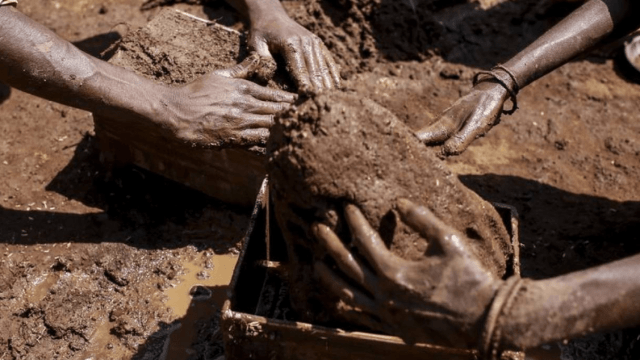Indian workers who have been rescued from bonded labor across Tamil Nadu’s brick kilns, rice mills, and factories are coming together to help others who are still trapped in forced labor.
According to International Justice Mission, an anti-slavery NGO, nearly 500,000 laborers in 11 industries in the state are victims of debt bondage, stuck working for an employer to repay debts to employers and lenders. Yet often these debts are impossible to pay based on their meager wages.
Varalakshmi Gopal, 45, is one such worker who was rescued after spending seven years in bonded labor in a rice mill. She’s now part of the Released Bonded Labourers Association (RBLA), a group focused on freeing other from modern slavery.
Thomson Reuters Foundation spoke to Gopal to understand her work:
“I often enter these facilities pretending to be a person looking for work, or sometimes a brick kiln owner searching for labourers who have escaped from my facility,” said Gopal.
“I know it is dangerous but I feel compelled to do it.”
Once she finds evidence of bonded labour, she tips off police. She said she has taken part in at least 10 rescue operations.
Members of four RBLAs are now spread across the state to spot forced labour, especially in brick kilns and rice mills, which are busiest in April and May before the monsoon rains hit, said RBLA members.
Gopal added that RBLA has seen a spike in its membership this past year, evidence, she says, that the worker movement to end debt bondage is getting stronger in Tamil Nadu.
While India technically outlawed bonded labor in 1976, the problem remains widespread.
“There are gaps and challenges in the implementation of the law,” said Kuralamuthan Thandavarayan of IJM, which supports the RBLAs.
“But officials can’t ignore the voice of the survivors who have suffered for years,” he added. “The formation of these associations has given them a platform to fight back.”







Freedom United is interested in hearing from our community and welcomes relevant, informed comments, advice, and insights that advance the conversation around our campaigns and advocacy. We value inclusivity and respect within our community. To be approved, your comments should be civil.